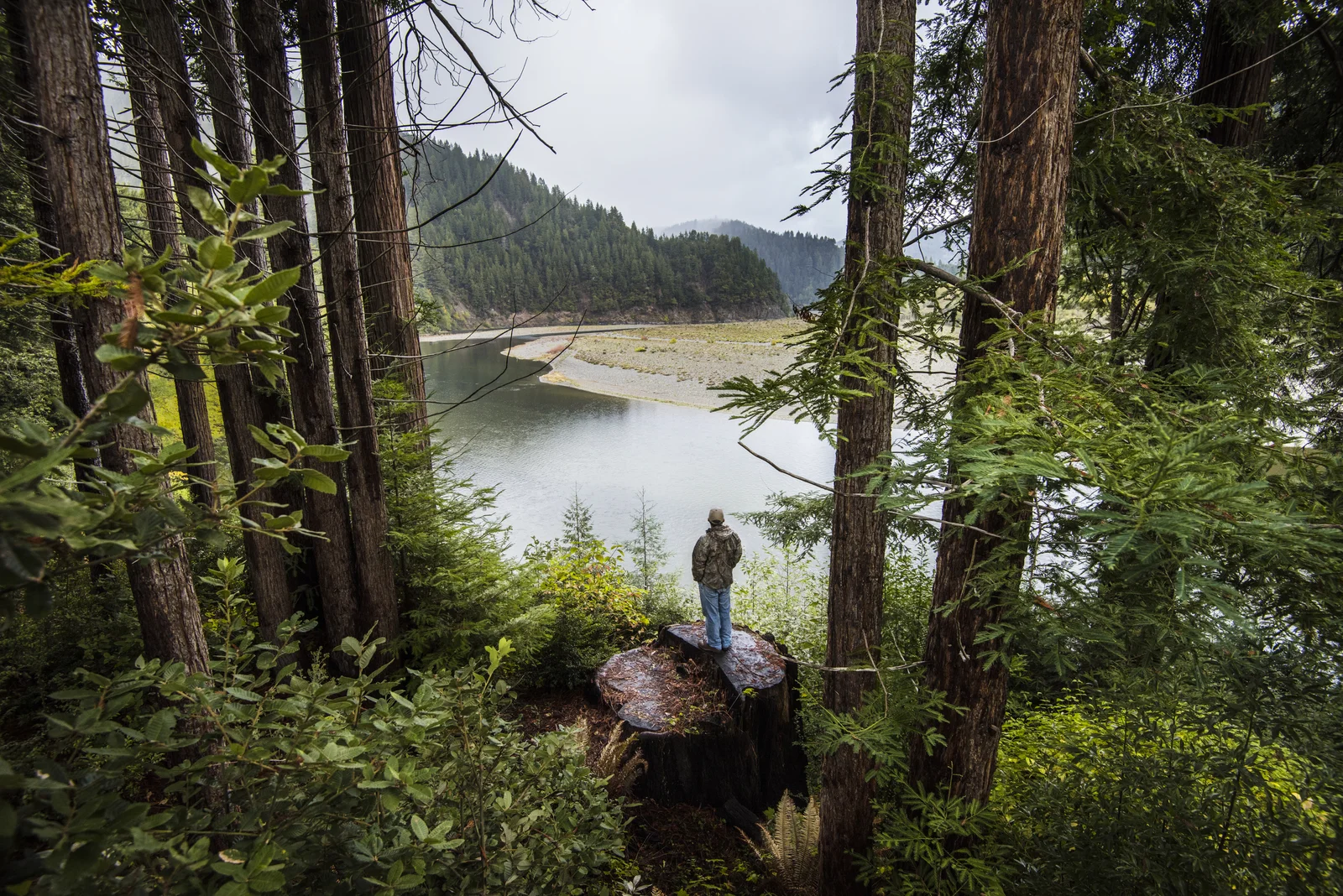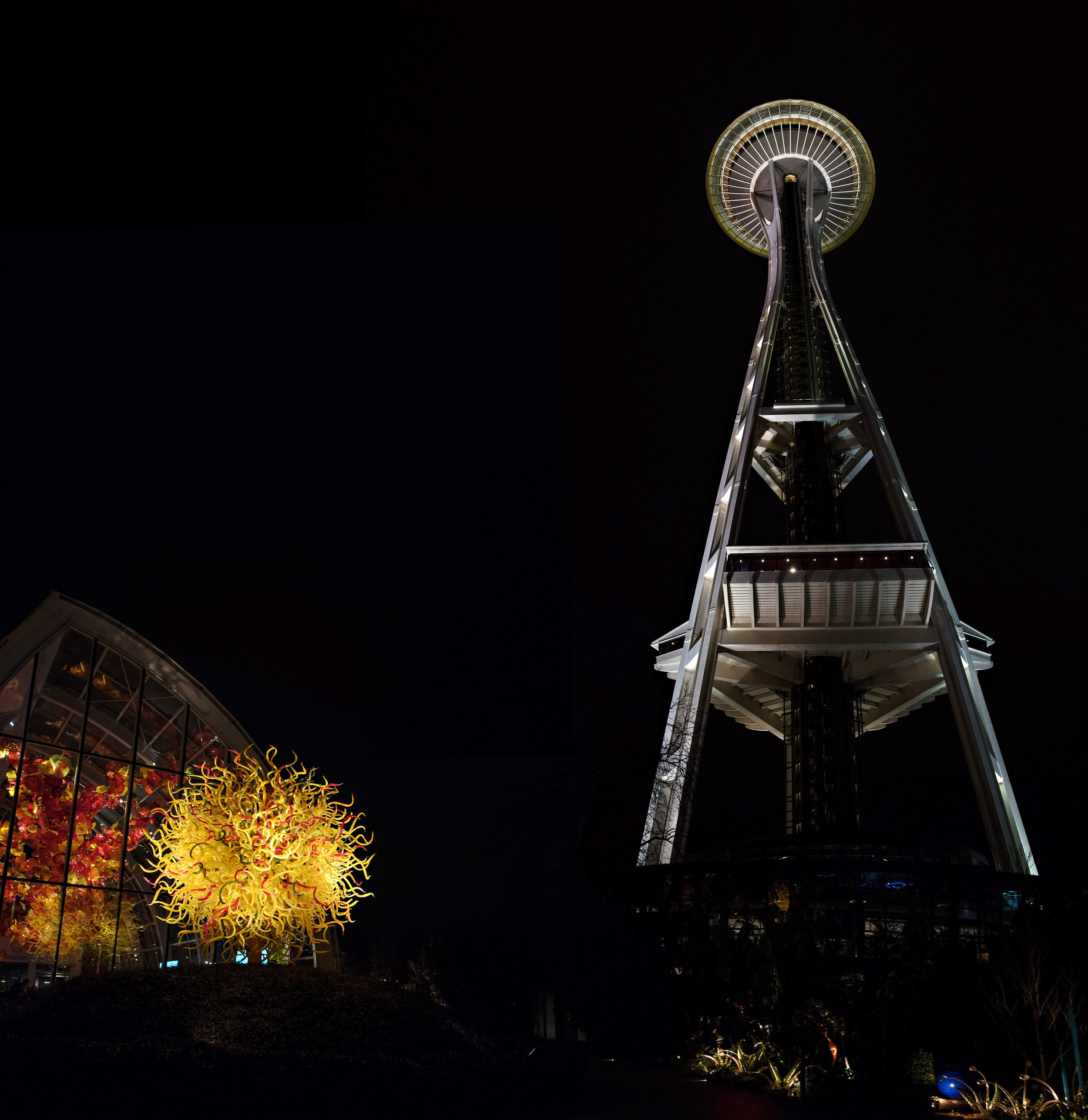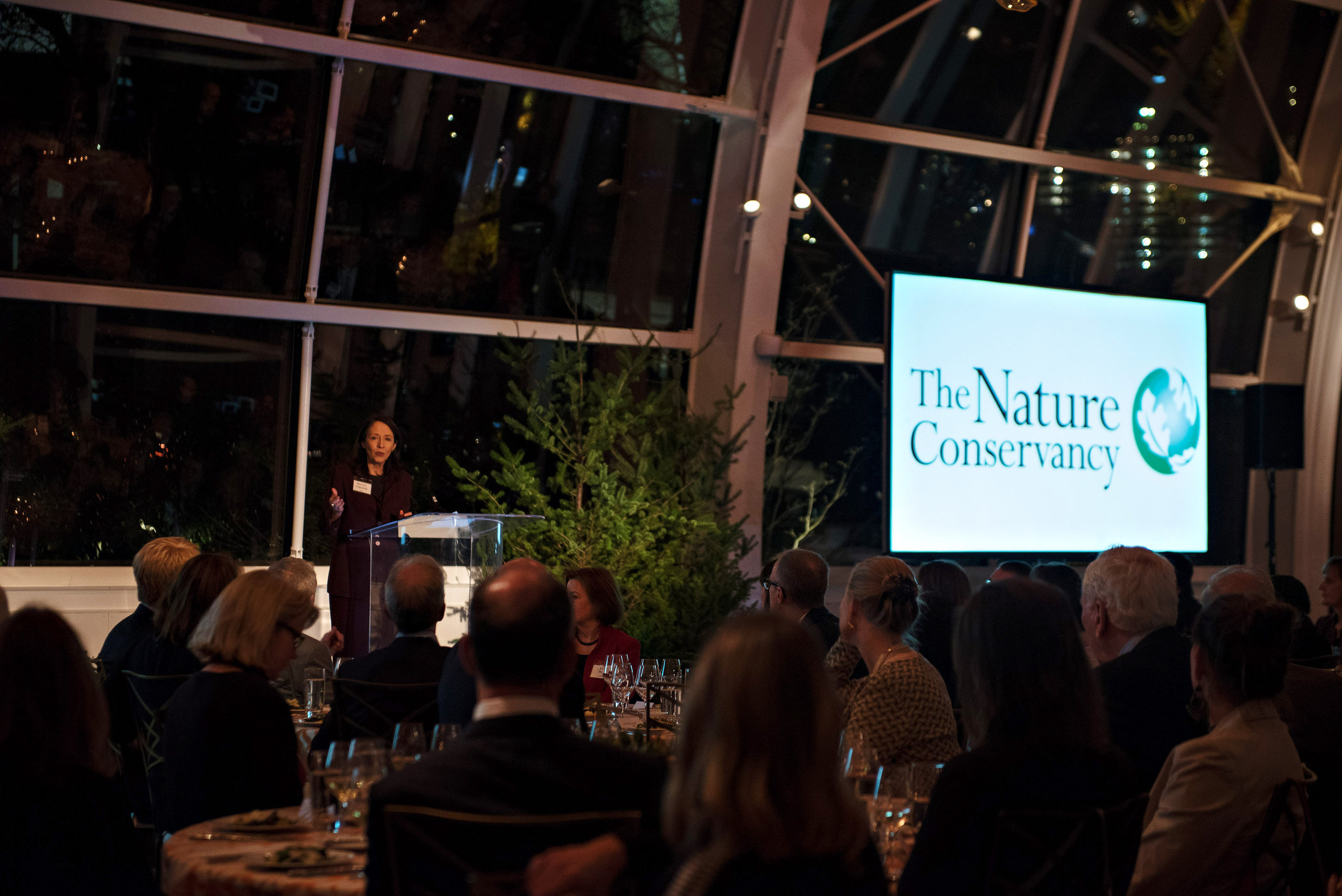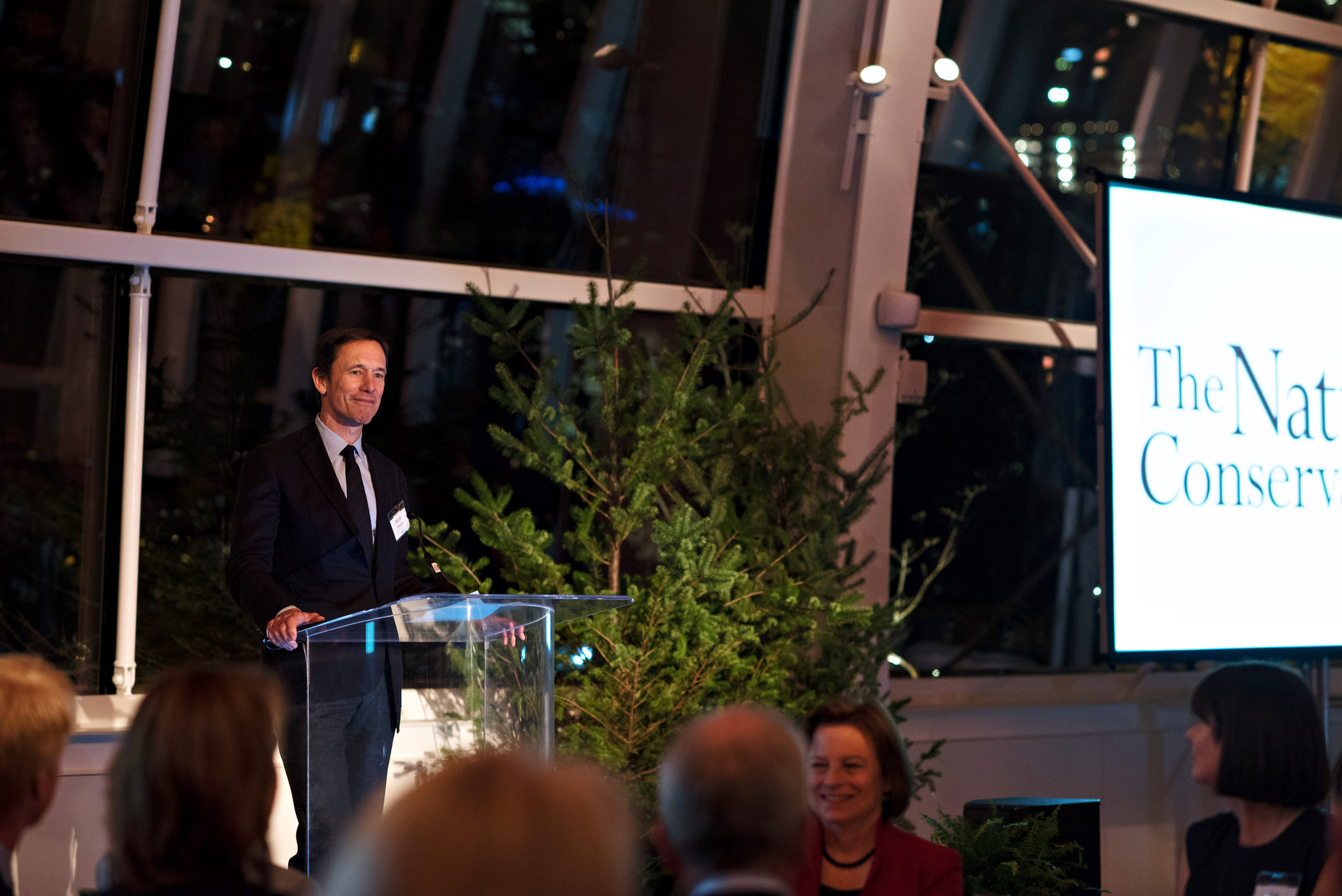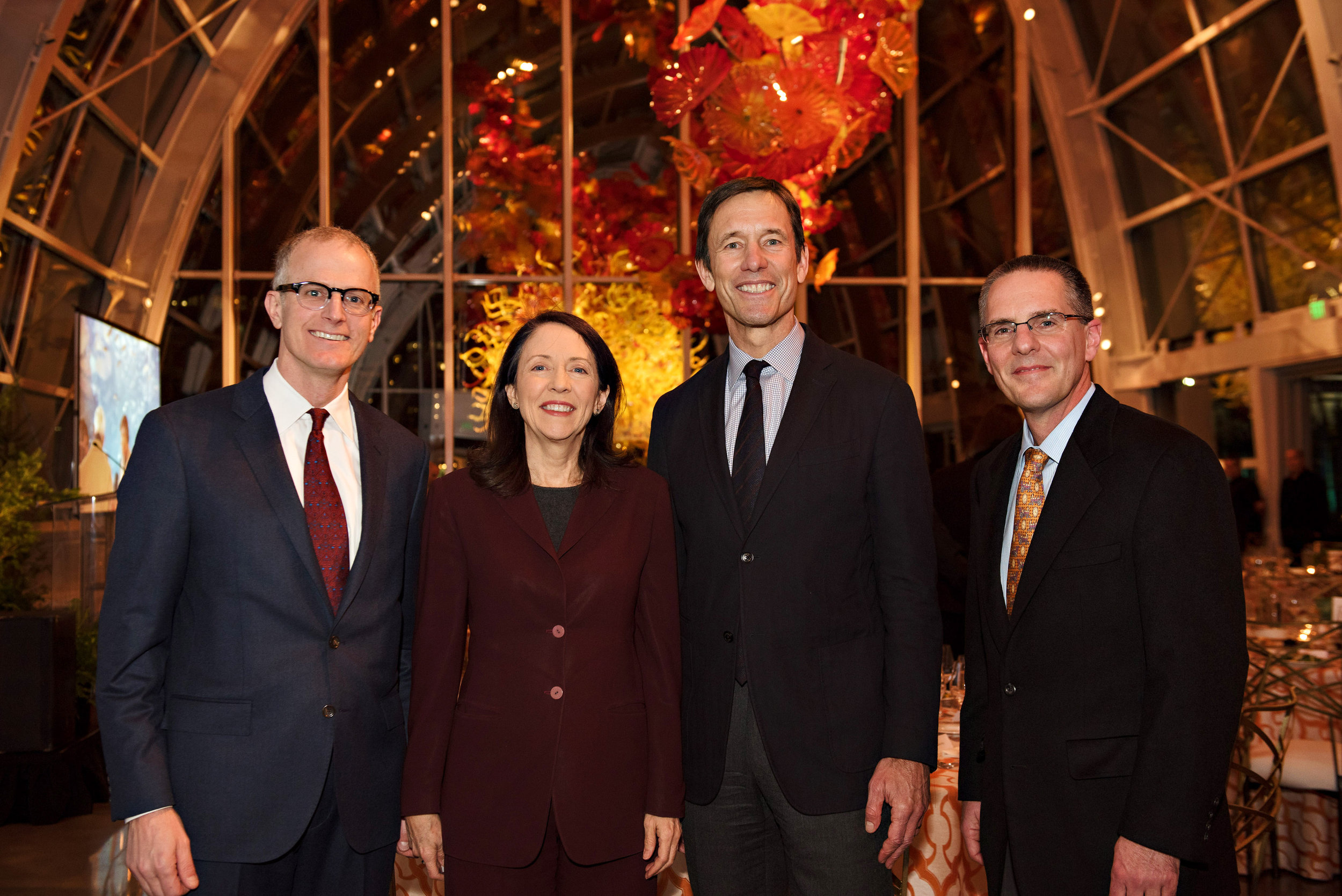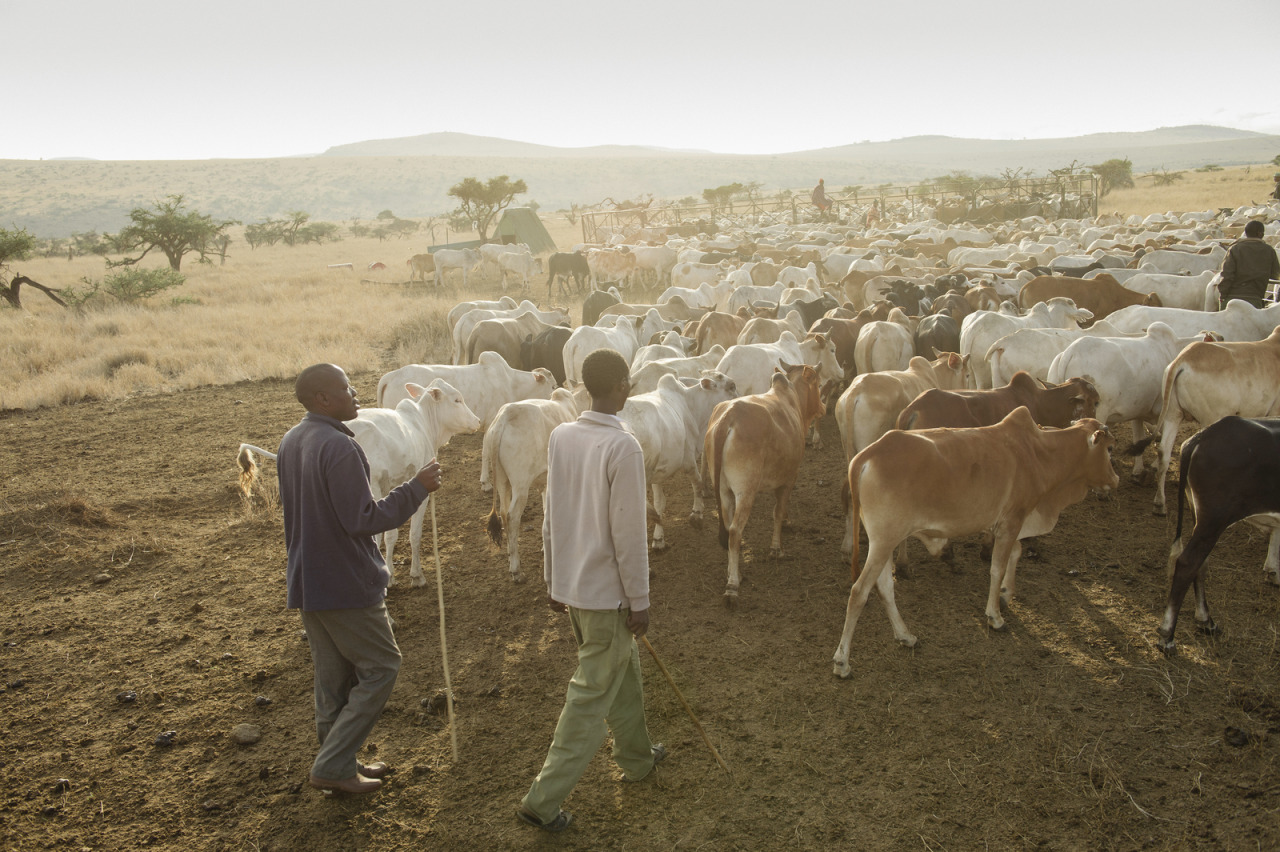We are a voice for nature at the state, federal and international levels of government, advocating for policy to benefit our shared lands, waters and everyone who depends on them.
From Seattle to Melbourne, Trees Are at the Root of our Cities' Health
Celebrating our Members in Washington and Around the World
Diving for Data in Nearshore Habitats
We're Going Global With Solutions to Climate Change
Indigenous People at the Heart of Conservation
Uniting for Conservation
Written by Carrie Krueger, Director of Marketing, The Nature Conservancy in Washington
Photographed by Barbie Hull, Northwest Photographer
What do you get when you bring together some of the brightest minds in the world, along with some of the most passionate and committed advocates, all focused on solutions for people and nature?
The Nature Conservancy’s global board including leaders across a multitude of industries around the globe came to Seattle for their quarterly board meeting this month. Also on hand were our lead scientists and program leads, all rallied around finding solutions to our planet’s biggest challenges.
Beyond convening to discuss issues, the group got a firsthand look at some of the work happening in Washington. Along Seattle’s waterfront they learned about issues facing the ocean and the fishing industry. In Seattle’s South Lake Union neighborhood they toured green solutions being used to help our rapidly growing urban areas manage density with natural infrastructure and by keeping a strong connection to nature.
On the final night the group gathered under the shadow of the Space Needle for dinner at the Chihuly Garden and Glass. U.S. Senator Maria Cantwell, who represents Washington state, welcomed the group with praise for the work The Nature Conservancy is doing in Washington, around the nation and around the world. She also spoke of the many pressing conservation issues we face and the need to work together to protect the environment. The group enthusiastically applauded Senator Cantwell’s leadership in renewing the Land and Water Conservation Fund, a vital program for protecting our nation’s lands and waters.
A diverse panel was asked to each share one bold solution to a challenging environmental issue. Pascal Mittermaier who leads TNC’s Resilient Cities program suggested escalating small pilot projects in cities to the scope of precincts as a way of accelerating impact. Seema Paul, Managing Director of The Conservancy’s India program suggested tapping into the spiritual connection between the Ganges River and the people of India as a way of galvanizing support. And Peter Kareiva, chair of The Conservancy’s Science Cabinet, threw out tapping into the power of Hollywood as his big idea, saying the voices of stars could advance support for conservation.
The discussion that followed was so stimulating that people continued to linger and hash through issues and solutions long after the evening wound down. While the problems we tackle are large, the innovation, science and determination to solve them is even bigger. The payoff for bringing together so many big thinkers will be solutions in the years to come.
LEARN MORE ABOUT OUR WORK AROUND THE WORLD
Community Centered Conservation in Africa
A conversation with David Banks, Program Director, Africa
Written by Deb Crespin, Associate
Director of Philanthropy
Photography by Ami Vitale
“Still the wildest place on the planet, a landscape that evokes our essential humanity and connection to animals and to the earth, the continent of Africa is still in great shape from the perspective of nature. While the economies and governance are improving fast, however, the current population of 1 billion will grow to a staggering 4 billion people in the next 90 years. It is ‘crunch time’ for Africa.”
This was the start of the talk by David Banks, The Nature Conservancy’s Program Director in Africa, to a group of TNC supporters gathered at the gracious home of TNC friends who share a passion for Africa and conservation.
As David explained, Africa continues to be the land of opportunity and promise. Phenomenal wildlife, rivers, and forested landscapes, yet we know that there will be a “perfect storm” over the next ninety years of tremendous challenge. As the human population is projected to expand, at the same time, the natural systems that have supported this continent for tens of thousands of years are at risk of being inappropriately developed.
The equivalent of hyenas circling their prey, the threats to the African continent range from the undeveloped hydropower potential – damming, bifurcating, and re-channeling rivers – to oil, gas, mining and forestry. The last remaining lands of the savannah… the dense tropical rainforest…and the nearby marine systems are going to be stressed like never before.
The Nature Conservancy in Africa has worked from the ground up, with community partners and informed by science, to take on these huge threats and seek new solutions that can alter the course of where Africa is headed.
Banks spoke of three extraordinary projects/opportunities:
- Marine protection in the Seychelles, helping leaders make smart choices about how lands, waters and oceans are used for food, water, energy, industry and more. TNC is working with the local government to protect hundreds of acres of marine systems;
- Preserving habitat and increasing wildlife security – using a community-based model, TNC is working with locals in Kenya, Zambia and Tanzania. TNC is working with lakeshore villagers who live on Lake Tanganyika on wildlife and health issues, partnering with a global health organization Pathfinder to support women and families;
- Restoring and protecting sources of food and water, with innovative programs, such as bringing livestock to market, creating more opportunities for local economic growth.
We learned this: what’s good for the cow is good for the elephant! TNC has improved over 7.4 MILLION acres of rangelands throughout eastern Africa! What helps people helps livestock which helps wildlife which helps habitat.
And bringing it all back home: State Director Mike Stevens wrapped up the conversation by noting that the strength of The Nature Conservancy is that we are guided by science, work through partnerships, and capitalize on our local to global lessons and approach.
Asante sana!










